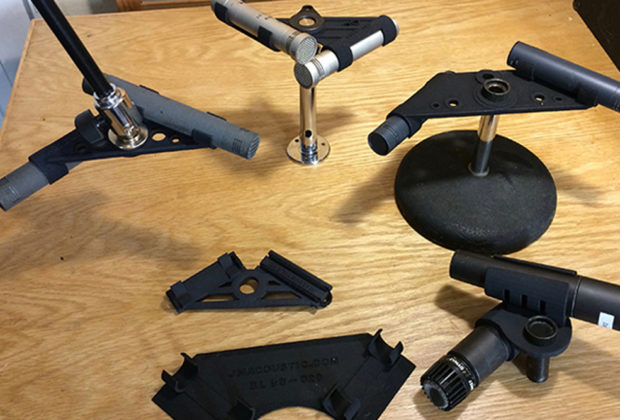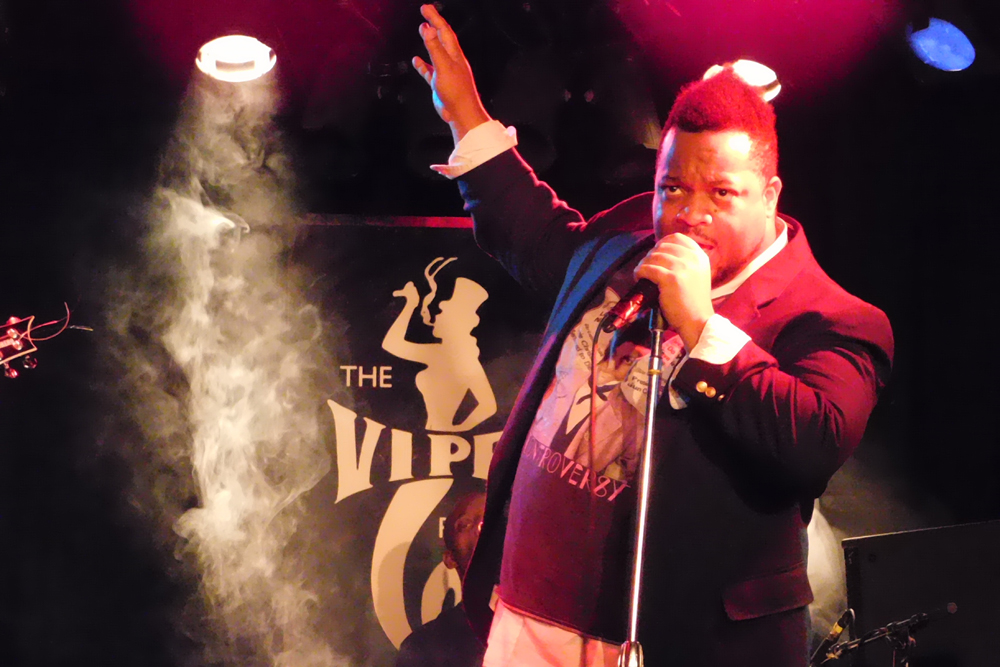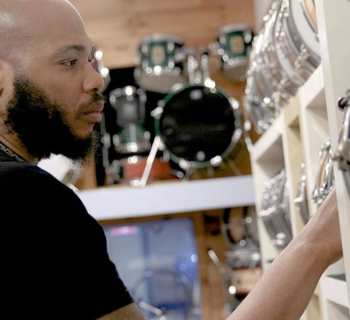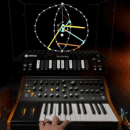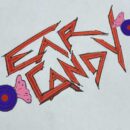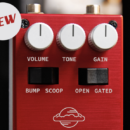JM Acoustic has a line of fixed-angle stereo microphone clips made in America using EOS PA2200 nylon manufactured in an industrial-grade 3D printer. They have a matte black finish that makes them nearly invisible when "flown" overhead at stage/live/televised events.
In recording studio applications, it is now easy to quickly switch between (to evaluate) different stereo microphone techniques and know that the fixed position/angle of the mics will always be locked in. This is not assured when using a metal stereo bar.
The microphones "snap" into the clips and for non-standard sized mics, there are also universal fit clips available where the microphones are held in place using supplied elastic bands.
The basic clip models that cover industry standard stereo techniques are: a Mid-Side clip for holding a cardioid and figure-of-8 microphones precisely; a 90-degree X-Y coincident clip; and a 110-degree ORTF (Office de Radiodiffusion-Télévision Française) near-coincident clip. The ORTF clip is optimized for two-microphones spaced 17-cm apart (the average distance between your two ears). There are also near-coincident clips with a 20-cm or 30-cm spacing as well.
JM Acoustic also offers a clip that uses two pairs of microphones (4 mics total) called STAAG or Stereo Technique for Augmented Ambience Gradient. This fairly new technique uses two front-facing mics in an ORTF configuration locked to a second pair of rear-facing mics also in ORTF. By recording all four microphones on separate tracks, the mixer has the ability to increase/decrease the amount room ambience post recording in the mix.
The JM Acoustic Stereo Mic clips come in a whole range of sizes to fit microphones with diameters ranging from 12-mm to 24-mm and mic spacing from 0-cm for X-Y and M-S configurations up to 30-cm for ORTF, DIN (Deutsches Institut für Normung or German Institute of Standardization) 90-degree and near-coincident setups.
I tried both the ORTF and X-Y clips on acoustic guitar using a pair of Gauge Precision ECM-84 small diaphragm microphones. They are 20mm in diameter--a common diameter for a lot of studio microphones. I used a supplied WindTech MA-01 5/8"-27 female to 5/8"-27 male swivel mount adapter (about $10) to position and lock down the clip exactly where a wanted it. I liked being able to reliably position and repeat the same position on another session day.
I tried both the omni-directional and cardioid capsules and using either the ORTF and X-Y clips on acoustic guitar. It was certainly easy to hear and decide which technique produced the stereo spacious sound I was after and well as maintain good mono capability. I ended up with 110-degree ORTF with cardioids although the omni capsules worked well too.
JM Acoustics stereo mic clips range in price from $30 to $60 and there is more about all the models at jmacoustic.com.
jmacoustic.com/Gallery-/gallery-.html
Near-coincident and STAAG microphone technique video at: youtu.be/Gx6fVtq2JwU
Barry Rudolph is a recording engineer/mixer who has worked on over 30 gold and platinum records. He has recorded and/or mixed Lynyrd Skynyrd, Hall & Oates, Pat Benatar, Rod Stewart, the Corrs and more. Barry has his own futuristic music mixing facility and loves teaching audio engineering at Musician’s Institute, Hollywood, CA. He is a lifetime Grammy-voting member of NARAS and a contributing editor for Mix Magazine. barryrudolph.com

